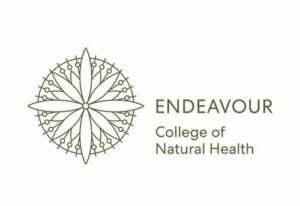What is gut health?
Whilst ‘gut health’ is not clearly defined in scientific literature, the term has become an increasingly popular concept in modern medicine and the food industry. Gut health is undoubtedly complex encompassing both the upper and lower gastrointestinal tracts. It is core to overall health and involves five major criterion:
- Optimal digestion: normal nutritional status/absorption of food, regular and consistent bowels, and limited bloating/flatulence
- Absence of gastrointestinal (GI) illness: no reflux, inflammation, enzyme deficiencies, carbohydrate intolerances, IBD/coeliac, and colorectal/other GI cancers
- Stable, resilient, and diverse microbiome: no bacterial overgrowth, normal composition of commensal bacteria, no infections, or antibiotic-associated complications
- Systemic health and immune response: normal gut barrier function and immune response/tolerance
- Overall well-being: normal quality of life, balanced gut-brain function, and positive gut feeling
What is the microbiome?
Do you ever feel alone? Well don’t, because your gut microbiome (also termed microbiota) is home to hundreds of microbial cells (bacteria, viruses, and fungi) that happily coexist in your small and large intestines. These ‘bugs’ are uniquely diverse, have their own DNA, and are susceptible to change depending on one’s diet, environment, medication intake, and more.
The gut microbiome starts evolving from birth with rapid changes taking place in the first two to three years of life. These early changes are predominantly dependent on two things:
- Source of dietary intake – breastfeeding/bottle feeding/food
- Environmental exposure (including birth delivery)
After three years the infant microbiome becomes the blueprint of the adult microbiome.
Over recent years the gut microbiome has become a hot topic of research, mostly due to the accruing links to a plethora of health conditions. The microbiome can harbor both beneficial and harmful (at varying levels) microbes. Microbes have the ability to use what you consume (food) as a source of fuel and in turn produce certain metabolites such as short chain fatty acids, gases, and vitamins. Short chain fatty acids such as butyrate, propionate, and acetate have particularly key roles in influencing various body systems for e.g., immune, nervous, and cardiovascular.
What is a healthy microbiome?
Gut microbiome exploration is an ongoing endeavour. Thus far we only have gained a drop of knowledge when it comes to the sea of microbes within the human gut. What constitutes a healthy microbiome is subjective. One person’s considered ‘healthy’ microbiome may not be healthy for another person. A collective understanding among researchers is that ‘good’ microbes need a good amount of fibre as a fuel source. Increased dietary fibre intake has been long-established as an integral nutrient/ingredient with various health benefits. Hence, it comes to no surprise that our ‘bugs’ love fibre too. Low fibre diets have been linked with an altered gut microbiome composition including a reduction in beneficial bacteria and an increase in the production of not so beneficial metabolites.
How do we test the microbiome?
Thanks to rapid advances in microbiome testing technology, testing the microbiome has not only become affordable but also easily accessible. Most companies supply at-home non-invasive testing kits that require a small amount of faecal load. Microbiome testing involves elevated levels of DNA sequencing technology. Your poo has quite the potential; it can tell you a lot about your inner workings, i.e., how your gut microbes may behave, what they love to eat, and ultimately what they can produce. Shotgun metagenomics is top tier when it comes to microbiome analysis followed by meta-transcriptomics and metabolomics:
- Shotgun metagenomics sequencing: sampling all microbe genes (DNA) (whole-genome) and their potential (species level) – who is there and what they can do
- Meta-transcriptomic sequencing: sampling of microbes and their functional profile – which genes are collectively expressed under different conditions (i.e., conditions that are present within the host at time of testing) and what they do
- Metabolomic sequencing: sampling of microbes at specific regions (genus level – e.g., 16s) under different conditions (i.e., conditions present at the time of testing) and their by-products – does not reveal which bacteria produced them, nevertheless a great method of discovering new metabolites
Whilst these tests are not diagnostic per se, they do supply great insight into the community of microbes that exist within you. Each approach in its singular sense provides a substantial amount of information, and a significantly more comprehensive picture when combined. Combined testing is not readily available yet, but it is something to be pursued from both a clinical and research lens.
References
Bischoff, S. (2011). ‘Gut health’: a new objective in medicine. BMC Med, 9:24. doi: 10.1186/1741-7015-9-24
Cronin, P., Joyce, S., O’Toole, P., & O’Connor, E. (2021). Dietary Fibre Modulates the Gut Microbiota. Nutrients, 13, 1655. doi: 10.3390/nu13051655



